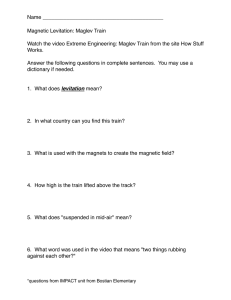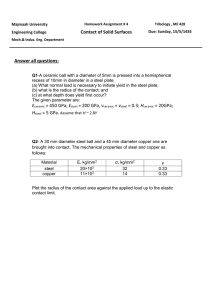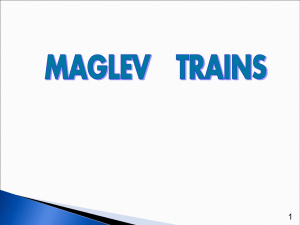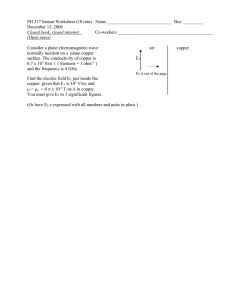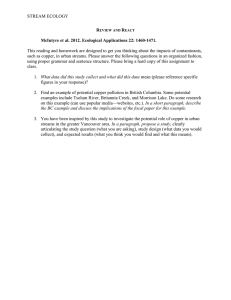India First Bullet Train and Product Offering by JMV LPS
advertisement
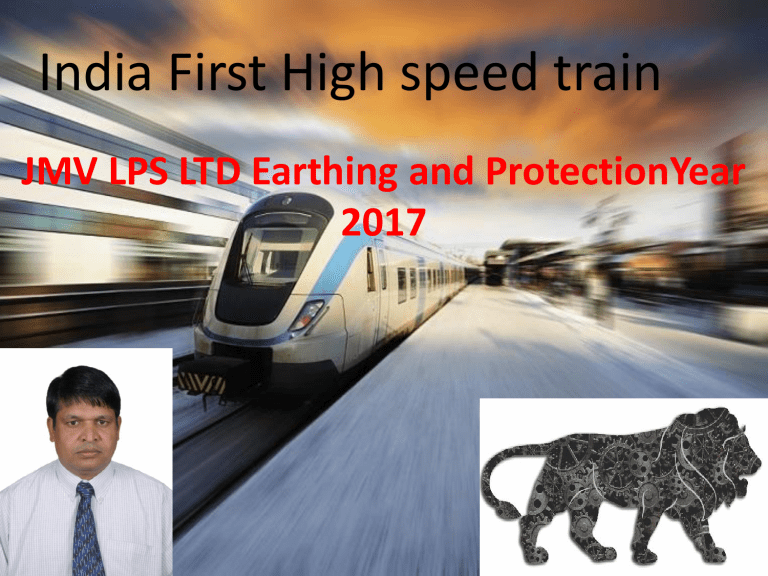
India First High speed train JMV LPS LTD Earthing and ProtectionYear 2017 The magnetized coil running along the track The magnetized coil running along the track, called a guide way, allowing the train to, allowing the train to levitate levitate between 0.39between 0.39and 3.93 inches above the guide way. Once the train is and 3.93 inches above the guide way Japan India JV for Bullet Train India Japan Finance Aggrement for First India Bullet Train PROPOSED ROUTE FOR BULLET TRAIN India DreaM Plan Bullet Train DIAMOND QUADRILATERAL Project of the Indian railways to establish high speed rail network in India. Connect the four metro cities: Delhi, Mumbai, Chennai and Kolkata. Track Gauge :1676 mm Speed :250-350 km/hr Length : 6500-7000 km FIRST BULLET TRAIN PROJECT According to Forbes India, the costs for constructing such rail lines in India are estimated to be Rs 70-100 crores perk. Therefore the Mumbai-Ahmedabad route of 500km, will cost Rs 37,000 crores to build. With the cost of land acquisition etc, the price will go up to about Rs 60,000 crores. COACH VIEW Bullet Train Rolling Stock Train Control Systems MALGEV VECHILE(Rolling Stock) TRAIN OPERATION CONTROL TECHNOLOGY MAGLAV is the principle used in working of modern high speed train MAGLAV-derived from MAGnet and LEVitation Magnetic levitation transport is a form of transportation that suspend guides and propels vehicles through the harnessing of electromagnetic force The Bullet Train Track Type of Magnet Uses This train uses superconducting electric magnets in the vehicle to levitate and propel the train. These magnets are cooled by liquid helium or liquid nitrogen. This means that once electrified these magnets do not require additional energy. ELECTRODYNAMIC SUSPENSION In Electrodynamic suspension, both the rail and the train exert a magnetic field, and the train is levitated by the repulsive force between these magnetic fields The magnetic field in the train is produced by either electromagnets or by an array of permanent magnets. The repulsive force in the track is created by an induced magnetic field in wires or other conducting strips in the track. Two types of bullet train Technologies • Electromagnetic suspension (EMS) • Electrodynamic suspension (EDS) Electrodynamic suspension (EDS) In electrodynamic suspension (EDS), both the rail and the train exert a magnetic field Electromagnetic suspension (EMS) In current electromagnetic suspension (EMS) systems, the rail is situated between the upper and lower edges and use electromagnets to levitate the train MAGLEV TECHNOLOGY There are two primary types of maglev technology: 1. Electromagnetic suspension (EMS) 2. Electrodynamic suspension (EDS) WORKING OF MAGLAV A maglev train floats about 10mm above the guideway on a magnetic field. It is propelled by the guide way itself rather than an onboard engine by changing magnetic fields Once the train is pulled into the next section the magnetism switches so that the train is pulled on again. The Electro-magnets run the length of the guide way. MALGEV VECHILE(Rolling Stock) MaGLEV Principal/TECHNOLOGY MAGLEV TECHNOLOGY MAGLEV TECHNOLOGY EMS MAGLEV TECHNOLOGY EDL MAGLEV TECHNOLOGY COMPARISON MALGEV EMS &EDS CoMPARISON Follow Safety in Electrical Instalation An Arcing Fault is the flow of current through the air between phase conductors or phase conductors and neutral or ground. Concentrated radiant energy is released at the point of arcing an a small amount of time resulting in Extremely High Temperature. Fire Accident Due to Lightning/Short CKT We Want India Safe Practice Earthing and Protection Why Accidents happen? Accidents generally happen due to lack of maintenance, lack of Supervision, lack of knowledge, over confidence and negligence. Accidents may also happen due to one or more of the following reasons: Using improper tools Improper/non usage of protective devices Lack of proper instructions and supervision Mental/physical condition of the employee Poor Judgment Surge in Systems and Result JMV LPS Products Copper Cladded Conductor For Electrical Installation The Copper Clad Steel Grounding Conductor is made up of steel with the coating of 99.99% pure copper. These conductors/ wires or strands are equipped with the strength of steel with the conductivity and copper with the better corrosion resistance property. The concentric copper cladding is metallurgic ally bonded to a steel core through a continuous, solid cladding process using pressure rolling for primary bonding. The copper cladding thickness remains constant surrounding steel. We use different steel grades for the steel core result in Dead Soft Annealed, High strength and Extra High Strength Characteristics. The Copper Clad Steel Wire yields a composite conductivity of 21%, 30% and 40% IACS, and available in Annealed and Hard drawn. We are delivering products with varied conductivity and tensile strength as per the customer need. Further, the wire can be processed to be silver plated or tinned copper clad steel wire. Most Efficient JointProcess It is efficient and superior to all existing surface –to-surface mechanical retention connectors. What is Exothermic Welding System? Copper to Bi-Metal and Alumenium Types of Exothermic Joints: Possible to join any bi metal except aluminum Exothermic welding is a process of making maintain free highly molecular bonding process is superior in performance connection to any known mechanical or compression-type surface-to-surface contact connector. Exothermic weld connections provide current carrying (fusing) capacity equal to that of the conductor and will not deteriorate with age. It offers Electrical connections between two or more copper to copper and copper to steel conductors. Highly portable method as it does not require any external power source or heat source, so it can be done almost anywhere. It provides strong permanent molecular bond among metallic conductors that cannot loosen and further will not deteriorate with age. Connection does not corrode with time and it offers permanent conductivity. JMV’s Clients Neeraj Saini – 9910398538 Rahul Verma – 9910398535 Manav Chandra - 9910398999 manav@jmv.co.in
